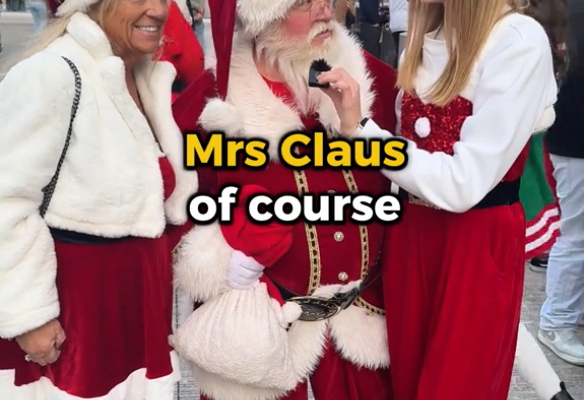Gifts come in many shapes and forms—some are wrapped in shiny paper with bows, others arrive in the form of experiences, and a few don’t come in boxes at all. The best gifts aren’t always the most expensive or extravagant. Sometimes, they’re the ones that carry meaning, bring us closer to someone, or change the way we see the world. When I think about the best gift I’ve ever gotten, it wasn’t a gadget, money, or a luxury item. It was a handwritten letter from my grandfather—a simple, heartfelt message that left a lasting impression on my life.
I received this gift when I was a teenager, around 16 years old. My grandfather had always been a quiet, gentle man. He didn’t speak much, but when he did, his words carried wisdom. We weren’t especially close when I was younger. I loved and respected him, of course, but there was a distance—partly because of the age gap and partly because I didn’t understand him. He was from a different time, with different values and a different way of expressing himself.
¡Ayuda! ¿Cómo se dice ‘Estrenar’? 😊 Por cierto, vayan a ver la ropa de…
El español es un idioma lleno de palabras únicas, expresiones coloridas y matices culturales que a veces no tienen una traducción exacta en otros idiomas. Una de esas palabras que causa confusión —pero también mucha curiosidad— es “estrenar”. Para los hispanohablantes, es una palabra común, pero si alguna vez has intentado explicársela a alguien que no habla español, sabrás lo difícil que puede ser encontrar su equivalente perfecto en inglés u otro idioma. Entonces, ¿cómo se dice “estrenar”? ¿Y por qué es tan especial esta palabra?
¿Qué significa “estrenar”?
La palabra estrenar significa usar algo por primera vez. Puede referirse a ropa, zapatos, un coche nuevo, una casa recién comprada, o incluso una película que se proyecta por primera vez en los cines. Es una palabra que expresa la emoción de lo nuevo, ese primer uso que a menudo viene con entusiasmo, orgullo o una sensación especial.
Christmas
- The holiday celebrated on December 25th to commemorate the birth of Jesus Christ. It’s also widely celebrated in secular ways around the world.
- Example: “We always have a big family dinner on Christmas.”
Merry
- A word that means joyful, cheerful, or full of happiness.
- Common Phrase: “Merry Christmas!”
Santa Claus
- Also known as Saint Nick, Father Christmas, or Kris Kringle. He is the legendary figure who brings gifts to children on Christmas Eve.
- Example: “The kids wrote letters to Santa Claus this year.”
Elf / Elves
- Santa’s little helpers who are often depicted making toys in the North Pole.
- Example: “The elves are busy in Santa’s workshop!”
Reindeer
- Magical animals that pull Santa’s sleigh. The most famous is Rudolph, the red-nosed reindeer.
- Example: “Dasher and Dancer are two of Santa’s reindeer.”
Sleigh
- A large sled that Santa uses to deliver presents, usually shown flying through the sky.
- Example: “The sleigh was loaded with gifts.”
North Pole
- The imaginary home of Santa Claus and his elves.
There’s something magical about a handwritten letter. In today’s digital age, where communication is fast and fleeting, receiving something handwritten feels incredibly special. Every stroke of the pen feels intentional. It shows effort, thought, and a willingness to be present in the moment. My grandfather took the time to sit down and craft something just for me, with no expectation of anything in return. That alone made it priceless.
After receiving the letter, I started writing more letters myself. I wrote to friends, family members, and even to myself when I needed clarity. I discovered that writing can be a powerful way to connect—not just with others, but with our own emotions. I often wonder if my grandfather knew what a ripple effect his gift would have. I think, in his quiet way, he did.
Of course, I’ve received many other gifts over the years. Some have been exciting, like a new phone or a surprise trip. Others have been thoughtful, like books that friends knew I’d love or hand-made crafts that showed creativity and care. But none have stayed with me the way that letter did. It didn’t just give me something to hold onto; it gave me something to remember, to learn from, and to cherish for the rest of my life.

As time passed, that letter became even more meaningful. A few years after I received it, my grandfather passed away. Losing him was difficult, but I felt comforted knowing I had a piece of him that I could hold onto forever. Every so often, I take the letter out and read it again. The paper has yellowed slightly, and the ink has faded a bit, but the message is just as powerful now as it was the day I first opened it.
In a world where so much focus is placed on material gifts, it’s easy to forget the value of heartfelt gestures. We often think the best gifts must be expensive or impressive, but the truth is that the most meaningful gifts come from the heart. They show us we are seen, valued, and loved.
The best gift I’ve ever gotten reminded me that love doesn’t have to be loud or flashy. It can be quiet, thoughtful, and lasting. It taught me the power of words, the importance of family, and the beauty of slowing down to connect with the people who matter most. It wasn’t something I had asked for, or even expected, but it turned out to be exactly what I needed.
So, what’s the best gift you’ve ever gotten? Maybe it was a toy that sparked your imagination, a trip that opened your eyes to the world, or an experience that changed your path. Or maybe, like me, it was something simple but deeply meaningful—a reminder that sometimes, the best gifts aren’t things at all, but moments, memories, and messages that stay with us long after the wrapping paper is gone.



